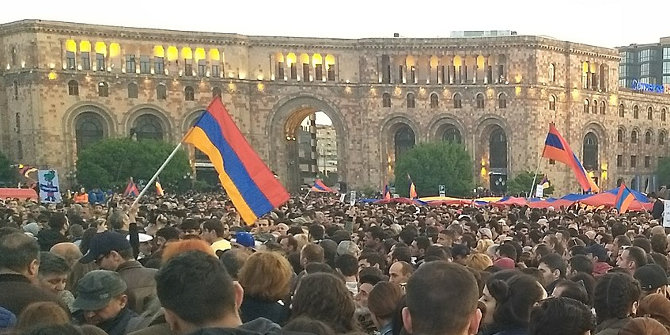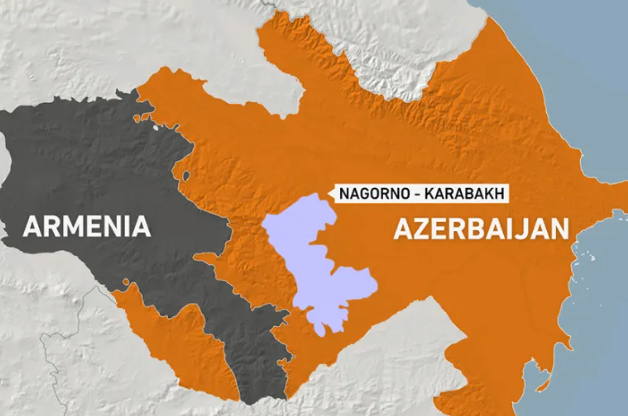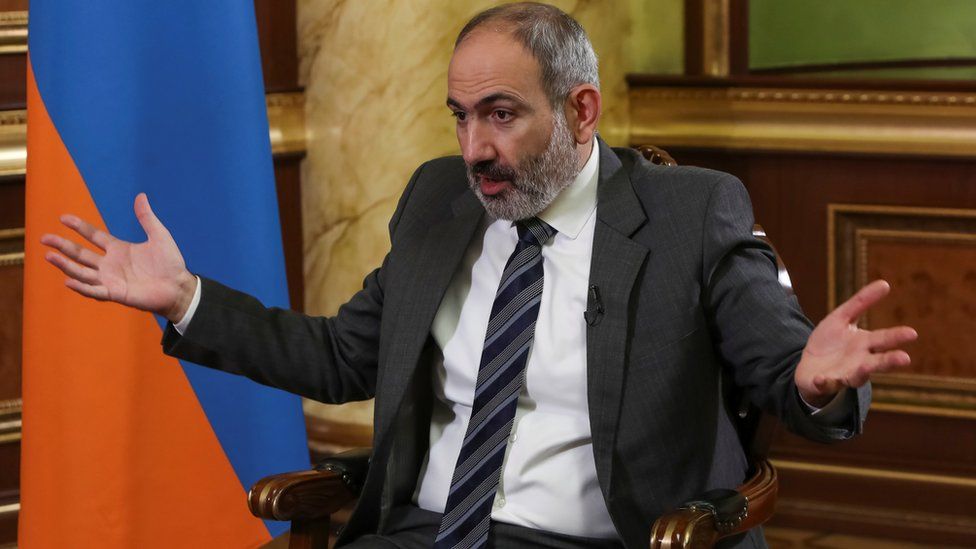The anti-government protests in Armenia in 2018 would lead to the beginning of a new political era. The public’s expectation in this political process was that the corrupt people and institutions in the country would change. President Serzh Sargsyan resigned as a result of protests, Nikol Pashinyan won the next elections. This entire process is also described as the Armenian “Velvet Revolution”.
Pashinyan’s government created by consisting of young people with some experience in foreign-funded NGOs or international organizations. The disadvantage of this situation was that these officials had not worked in public institutions before or were inexperienced. Pashinyan has created a dangerous groupthink dynamic by surrounding himself with activists. Moreover, among Pashinyan’s policy advisors, there is currently no one appointed before Pashinyan took office; they have all changed. That is, there was a risk of damaging the established functioning of the Armenian government. On the other hand, there was a threat against authoritarianism in Armenia, which was a Soviet country in the past. Such loud protests were not common in former Soviet countries. Russia, which was the main ally and protector of Armenia, was at risk of losing this position.
In order to understand the goals and decisions of Armenia’s foreign policy, we must examine the bureaucratic structure of Armenia. It is a country that lacks strong public institutions and supervisory elements of executive power. This is an element that can be abused by heads of state. Especially populist leaders can be effective in decision-making by making one-off foreign policy moves. One of the ways populist leaders try to legitimize their decisions is to make decisions in foreign policy by constantly emphasizing domestic political needs. For populist leaders, "right decisions" are the decisions that will receive the most enthusiastic reaction from their voters.

The policies of Pashinyan’s first term progressed with pro-Western and anti-Russian geopolitical consequences. In 2018, the Francophonie Summit was held in Yerevan and this event represented success in foreign policy. Pasinyan called on Armenias to instrumentalize their ”non-violent”. He assigned the new Minister of Foreign Affairs to accelerate official negotiations with the leading countries of Europe. He believed that he would establish alliances and new relations in foreign policy through his populism and media power. Despite all hopes, Pashinyan’s first meetings abroad didn’t yield any concrete results. Even the United States has not demonstrated any interest in aiding Armenia, despite the lobby efforts of Armenian organizations. The conflict between the White House and Congress weakened the traditional positions of the Armenian lobby to influence decisions in Trump era. At that time, Armenia was not displaying a consistent policy stance due to its populist statements. For example, Armenia called on Baku to ‘recognize the right of the people of Nagorno-Karabakh to self-determination’.
Pashinyan thought that democratic references were sufficient for the new Armenia. However, a populist artificial democracy was being created foundations were not well established. By giving democratic messages, Armenians believed that they had an advantage over authoritarian Azerbaijan in the Karabakh issue. In the following years, Pashinyan realized that democratic discourses were not sufficient and began to develop nationalist discourses. As for competition, Aliyev was more successful than Pashinyan in terms of statements at international conferences. Pashinyan sometimes didn’t implement the recommendations of the Security Council of Armenia and made contradictory statements.

Nevertheless, the reason for the failures in Armenia is not only related to Pashinyan’s foreign policy. His populist style exposed Armenia’s institutional weaknesses and structural limitations. Along with geopolitical realities, Armenia was stuck in foreign policy due to poor decision-making process. At that time, Azerbaijan took advantage of Armenia’s internal political turmoil.
Azerbaijan’s advantage over Armenia has increased in recent years. Azerbaijan purchased technological weapons especially from Russia, Israel and Turkey. They gradually prepared for war over the years. Azerbaijan achieved both diplomatic and military victory in the Second Nagorno-Karabakh War. Conflicts in the region continued from time to time, but the victorious side was clear. On the other hand, Armenia was struggling with protests and civil unrest. They were weak in terms of military technologies and were not ready for war. Moreover, even the populist statements of politicians were not supported by the public. Pashinyan was a figure that was no longer supported by the Armenian people. After the Azerbaijani victory as a result of Azerbaijan’s attack on Nagorno-Karabakh, the Republic of Artsakh will officially dissolved.
In summary, the problems in Armenia’s domestic politics grew and dragged Armenia into disaster on many issues. The government failed to avoid interfering with domestic political unrest in foreign policy. The main reason for this is that Pashinyan uses the internal problems in the country as a tool in foreign policy. There was no mechanism that would enable Armenia to make planned and analytical decisions in foreign policy. In addition to all these, Armenia didn’t improve its military inability despite the Karabakh issue. Armenian government preferred the media which is the invention of this century to war technologies, which are the main factor in winning wars. The process that started with a revolution ended with a lost war






